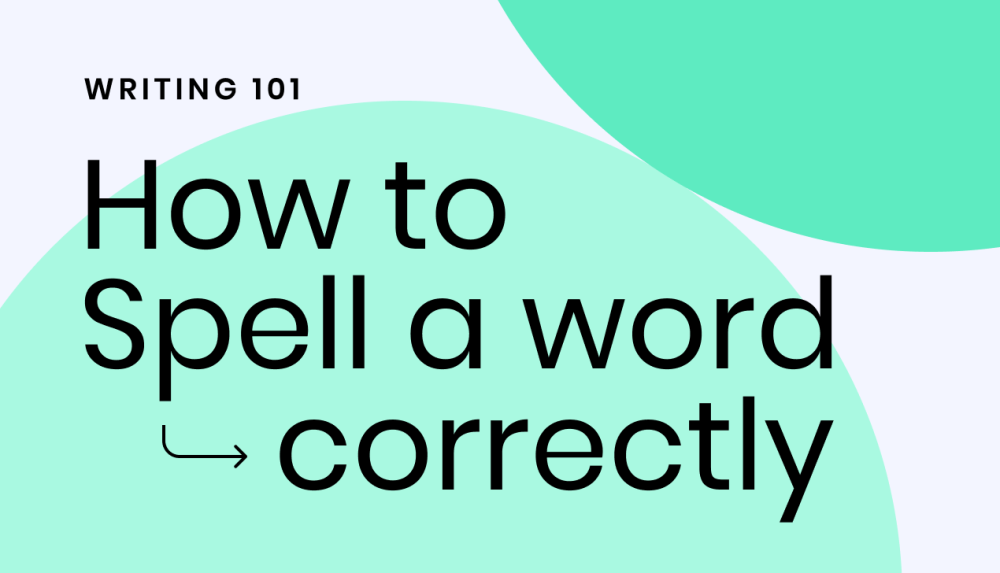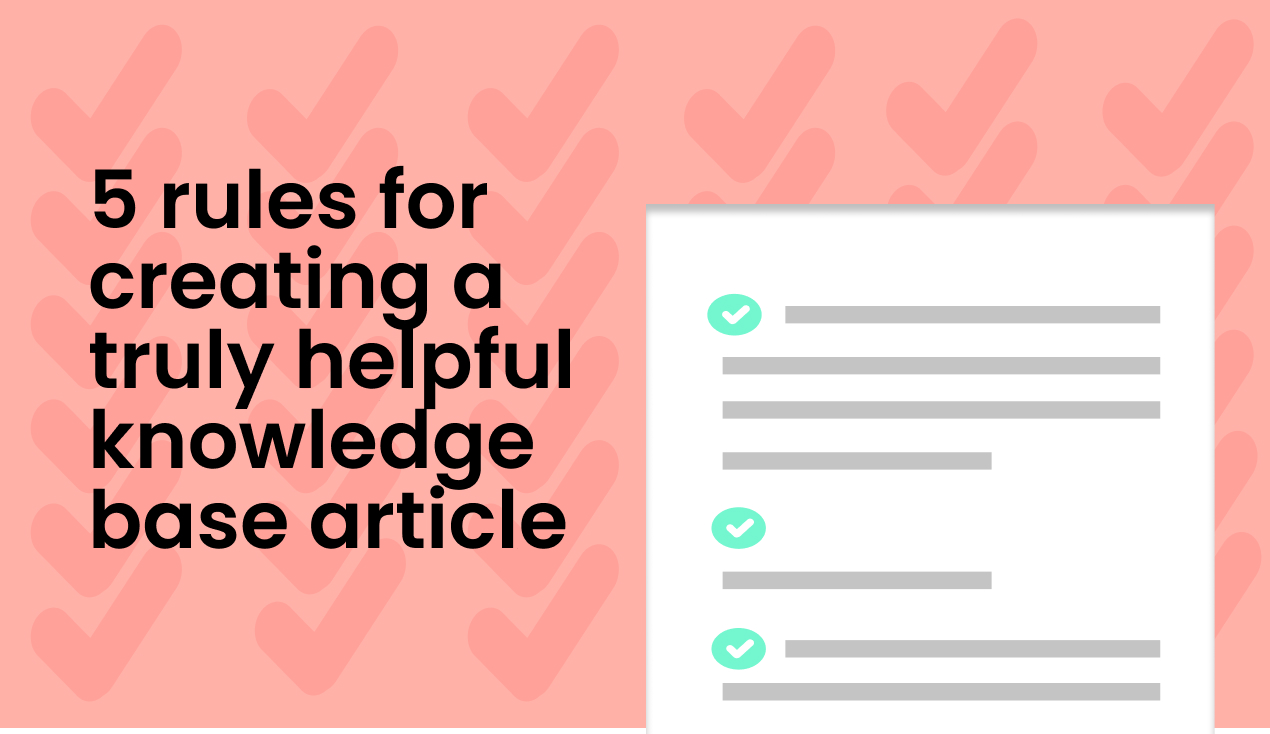Words at work
– 6 min read
How to spell a word correctly

Bad spelling can be dangerous.
Let’s take the commonly misspelled words – your and you’re.
Some folks might write – “Your going to die,” when they meant to write, “You’re going to die.”
@_ryanpm_Bad grammar is scary #inverted #SometimesIRun #grammarlesson #tiktokteacher♬ Sometimes – Britney Spears
Okay, this might be an extreme example.
Whether you are writing an essay for school, an important email, or a resume for a new job, the spelling of the words you use matter a lot. After all, an email with a bunch of spelling errors can make you look lazy or unprofessional.
However, the English language is drawn from multiple sources, like Latin and Greek. Add in the nuances between American English and British English. And, it is easy to see how people get confused about all of the different spelling rules.
Luckily, it is easy to fix. Our phones and computers now come with built-in spell checkers, so we don’t have to turn to Merriam Webster, dictionary.com, or, heaven forbid, memorize all of the ways to spell words like our grandfathers and grandmothers had to do back in the old days pre-computers, Internet, and smartphones.
However, the best spellers – you know the ones who participated in the National Spelling Bee as kids – know autocorrect won’t always have your back and can sometimes feel like it’s actively working against you. For example, every time your phone autocorrects a certain word to “duck” or “ducking” in your texts.
In this post, we’ll share the basics of spelling, tips for improving your skills, and a few of the most commonly misspelled English words.
What does spelling mean?
Essentially, spelling is the forming of words or letters in the correct, accepted order. It boils down to a series of letters that make up a word.
Being able to spell words correctly is not this magical force or superpower. Anyone can learn to be a better speller if you learn these basic rules to guide English spelling.
Without diving into the specifics of each, here are 5 of the categories that most spelling rules apply to in English:
• Prefixes and suffixes
• Doubling letters
• Dropping and adding letters
• Verb forms
• Plurals
The dictionary uses both American and British spellings of words. For instance, “color” is the American form of the word “colour” in British spelling. Though neither spelling is incorrect, the spelling you’ll use will likely depend on where you live.
British and American spellings of words often follow different spelling rules, so you’ll need to be sure to follow the rules of whichever you use.
How to spell words correctly
There are many rules to follow when it comes to spelling, and so many of these rules aren’t set in stone. The rules aren’t always applied the same way to different words.
This is a recipe for confusion.
But don’t worry! By keeping a few hints in mind, you can improve your spelling without having to memorize a ton of rules.
• Start by sounding out the words. Not every word is spelled how it sounds, but the phonetic respelling will give you a good start.
• Remember the old saying, “I before E except after C.”
• Know that adding a prefix doesn’t change the spelling of a word.
• Look for smaller words within a larger, more complex word. If you can spell the smaller words, it can get you closer to the bigger picture.
• Know that the second vowel is silent when two vowels are next to each other.
• Make a list of your most commonly misspelled words and practice spelling them correctly.
• Use a memory trick! For example, this one to help you remember the spelling of island: an island is land in the ocean.
• When in doubt, use thesaurus.com as a shortcut to find synonyms of the words that are easier for you to spell.
Commonly misspelled words
Spelling is a fundamental skill, but it takes time and practice to get the rules right. Even then, some words are just trickier than others and are often misspelled.
People often have the same natural tendencies toward making similar spelling mistakes. Here are a few of the most common reasons that people misspell words:
• Not understanding patterns or blending
• Inability to apply phonetic rules
• Reversing certain letters
• Misunderstanding of the relationship between letter sounds
• Inability to put spelling rules into action
• Not adding an apostrophe in the right place – or even at all.
Not everyone struggles with the spelling of the same words or even makes the same type of spelling mistakes. However, some words in general are just more difficult for people to spell.
For example, this epic middle school teacher shares a bunch of commonly spelled words in this fun TikTok.
@queenbc84##inverted ##MyRoutine ##grammarcheck ##teachersoftiktok ##ela ##middleschoolenglish♬ original sound – Shuba
In addition, here are 20 more frequently misspelled words in the English language:
1.
Correct spelling: separate
Common misspelling(s): seperate
2.
Correct spelling: definitely
Common misspelling(s): definitly, definately
3.
Correct spelling: accommodate
Common misspelling(s): accomodate, acommodate
4.
Correct spelling: separate
Common misspelling(s): publically, pubically
5.
Correct spelling: government
Common misspelling(s): goverment
6.
Correct spelling: receive
Common misspelling(s): recieve
7.
Correct spelling: independent
Common misspelling(s): independant
8.
Correct spelling: acceptable
Common misspelling(s): acceptible
9.
Correct spelling: piece
Common misspelling(s): peice
10.
Correct spelling: grateful
Common misspelling(s): greatful
11.
Correct spelling: gauge
Common misspelling(s): guage
12.
Correct spelling: aluminium
Common misspelling(s): alluminnum, alluminum
13.
Correct spelling: possession
Common misspelling(s): posession, possesion
14.
Correct spelling: perseverance
Common misspelling(s): perserverance, perseverence
15.
Correct spelling: questionnaire
Common misspelling(s): questionaire, questionnaire
16.
Correct spelling: rhythm
Common misspelling(s): rhytm, rythm
17.
Correct spelling: maintenance
Common misspelling(s): maintanence, maintenence, maintnence
18.
Correct spelling: exceed
Common misspelling(s): excede
19.
Correct spelling: entrepreneur
Common misspelling(s): entepreneur
20.
Correct spelling: misspell
Common misspelling(s): mispell
***
In sum, the best way to improve your spelling? Practice, read, and write often. You could also try Writer! Start a free trial today and keep your spelling game sharp with the power of an AI writing platform.






